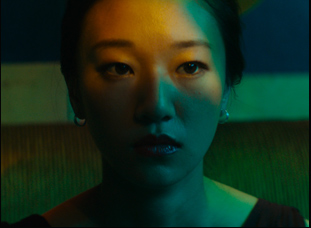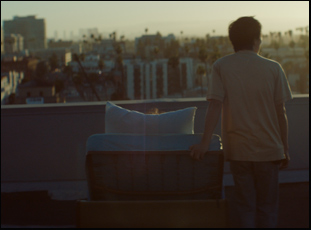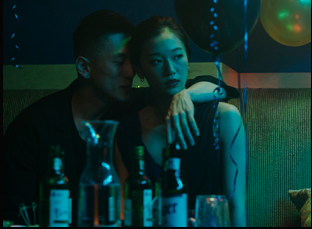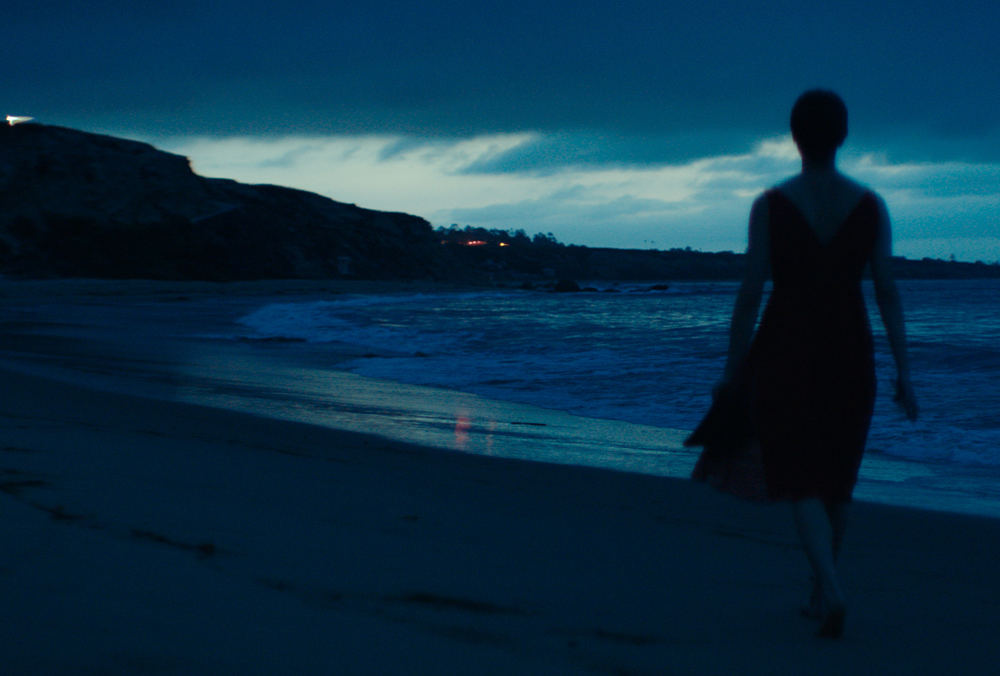At one point in “Ms. Purple,” siblings Kasie (Tiffany Chu) and Carey (Teddy Lee) retreat to the rooftop of their humble home in Los Angeles, licking lollipops and about to embark on an evening spent taking goofy pictures in a photo booth and playing pool into the wee hours of the night. They haven’t had much time to be kids with their mother abruptly leaving them before they were teens and their father suffered a debilitating bill of health, leading Carey to temporarily flee the nest as well. But Kasie is so relieved to have some help after spending her days tending to their dad’s care and her nights making the cash to keep a roof over their head as a doumi for wealthy men at a local karaoke bar that she’s too exhausted to hold a grudge, and in each other’s company, they turn back into kids, both because it’s the nature of their relationship and as a form of self-preservation since it mean avoiding the very adult decisions that need to be made.
In just two directorial efforts, it’s become a signature of Justin Chon’s to let what’s unsaid take on more and more weight, making the reverse true in his debut “Gook” where using the slur as a title took away its power to open up a nuanced confrontation with the deep-seated prejudices that had been simmering in South Central Los Angeles until the Rodney King verdict brought them out into the open. His onscreen alter ego in that film was careful to protect Kamilla (Simone Baker), an African-American girl too young to start forming strong biases, with his choice of words to the point their absence becomes a presence that begins to take on a life of its own, and something similar happens in “Ms. Purple” where Kasie and Carey talk around important things, surely spiraling towards their own destruction if neither one of them decides to speak up about their needs as their bedbound father holds them back.
Although the tension in “Ms. Purple” comes from the intriguing ways Carey and Kasie rebel against such an unfair lot in life, there’s an unbridled joy to be found in Chon’s second film, which involves Carey deciding to take their father, catheter and all, out onto the streets of L.A. to show him the city and with its energy channels the extraordinary power of siblings that are stronger together than they are apart. Already, Chon is keeping the momentum going with production set to start soon on his third feature and in the midst of a busy fall for the multihypenate who is also appearing in Wayne Wang’s latest, “Coming Home Again,” which will be making its world premiere this week at the Toronto Film Festival, I briefly caught up with him to talk about the origins of “Ms. Purple,” making a film in which he could concentrate exclusively on directing and a little bit about what’s next.

I really wanted to tell a story about siblings, specifically a brother and sister. I have a younger sister and I always thought that the brother and sister relationship is quite special because it’s quite specific – brothers are different [with each other] and sisters are different, and I also thought it was a great opportunity to make a film from the perspective of a Korean-American girl. With “Gook,” it was from a Korean-American man’s perspective and I just thought it was something that would stretch me and make me grow as a storyteller. I also wanted to explore that set in a gentrifying Koreatown, because it has become so different. It is constantly developing [to the point] that I wonder about the people that grew up there. It’s almost like a time machine. Sometimes it feels like they’ve been left behind and this film is an exploration of that and also for the Kasie character, how much of yourself do you sacrifice to be a wonderful daughter and how much familial duty is necessary.
How did you find the actors to play these siblings?
We put a casting thing out on Facebook for Kasie – that’s how we found Tiffany Chu and for Carey, I had talked to Andrew Ahn, who is the director of a wonderful film called “Spa Night” and I asked him who would he hire, but couldn’t because he just wasn’t right for the role. He sent me a handful of audition tapes and that’s how I found Teddy. We did about five weeks of rehearsal, tailoring it to the actors, and it was both Tiffany and Teddy’s first film, so it was really about making it work for them and through the rehearsal, we were able to refine it and figure out that [sibling] dynamic.
Was it a different experience for you being strictly behind the camera?
Yeah, I really enjoyed it. I really had the opportunity to focus much more on the performances and the minutiae of the film rather than just try to get through the day and I really got to think about storytelling through symbolism and the set design, the production design and the color palette.

The Spanish guitar was influenced by the whole Chicano storyline that weaves throughout the film. [Kasie] starts getting closer to this guy [Octavio, played by Ocavio Pizano] that’s outside of her community – one of the themes in the film is that she’s not alone and that the person you might connect with might be outside of your community – so I wanted to juxtapose what she was going through with that Spanish, melancholic guitar and the [classical] strings was much more her main theme and held a lot of the weight in heavy, introspective moments. That was something I felt was not particularly Asian and I wanted to go back to melodies that we came to love so much in the ‘80s and ‘90s with scores. Now I feel it’s kind of just background noise and not as recognizable, so I really tried to craft something with Roger that was simple, repeatable and recognizable, which is a tall order, but Roger definitely delivered.
I see you’re putting on a wedding and a Quincenera and filming with abandon in public spaces – was there a particularly tough day of filming?
Oh my God, yeah. We really stretched ourselves to try to get those scenes right and this is independently produced, so a lot of that required a lot of ingenuity and we really didn’t have any permits for any of that stuff, so we shot very smart. [laughs]

Absolutely. I think a lot of director friends that I have, they make a film and if it’s any sort of critical success, they have a fear of making the next one because they don’t want to burn their cache, per se. I’m actually in Mississippi right now prepping for the next film. It’s entitled “Blue Bayou” and it’s about a Korean-American adoptee who was adopted here in the ‘80s and is being deported and there’s ties from the motherland – from his mother who gave him up in Korea, but mostly about his life in the South and him contemplating his identity before he gets deported. And I’m really pushing myself to make one right away instead of waiting five or six years. I don’t want to do one once every five years. I’ll only be able to make a few in my lifetime if I go at that pace. That’s one of my ambitions is to continually put our stories that I feel are important and that I connect with because there’s a lot of stories to tell and not enough time.
“Ms. Purple” opens on September 6th in Los Angeles at the Nuart. A full list of theaters and dates is here.




